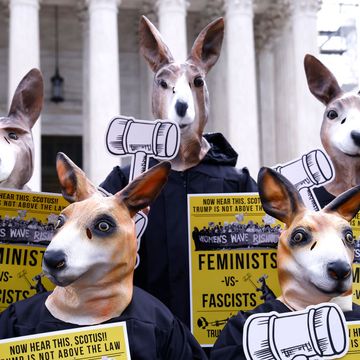James Hansen, the legendary former top climate scientist for NASA, is the lead author of a sobering new study that suggests that sea levels will rise as much as 10 feet in the next 50 to 100 years. The study, published and peer-reviewed in real time in the open-access journal Atmospheric Chemistry and Physics, brings attention to what is called a "feedback loop" in the oceans around the glaciers in Greenland and Antarctica: cold water from the melting glaciers forces warmer, saltier water deeper into the ocean, where it warms the glaciers further, resulting in faster melting. If the process continues at this rate, the study argues, meltwater will fully shut down the transport of warmer water to higher latitudes, which creates a planet with warmer tropics and colder poles, triggering more powerful winter storms. Evidence from the study suggests that coastal cities like New York may only have a few decades of habitability left. As for whether there is anything we can do to stop or slow the process, Eric Rignot, one of the study's co-authors, wrote his own study last year that concluded that the glacial melt is now "unstoppable."
Coping with the grim reality of climate change is the subject of John H. Richardson's feature in the August issue of Esquire. In the piece, Richardson interviews several climatologists and touches on the same idea of the "feedback loop" in the opening of the story, which is excerpted below.
The incident was small, but Jason Box doesn't want to talk about it. He's been skittish about the media since it happened. This was last summer, as he was reading the cheery blog posts transmitted by the chief scientist on the Swedish icebreaker Oden, which was exploring the Arctic for an international expedition led by Stockholm University. "Our first observations of elevated methane levels, about ten times higher than in background seawater, were documented . . . we discovered over 100 new methane seep sites.... The weather Gods are still on our side as we steam through a now ice-free Laptev Sea...."
As a leading climatologist who spent many years studying the Arctic at the Byrd Polar and Climate Research Center at Ohio State, Box knew that this breezy scientific detachment described one of the nightmare long-shot climate scenarios: a feedback loop where warming seas release methane that causes warming that releases more methane that causes more warming, on and on until the planet is incompatible with human life. And he knew there were similar methane releases occurring in the area.
Click here to read the rest of the story.

Dave Holmes is Esquire's L.A.-based editor-at-large. His first book, "Party of One," is out now.













